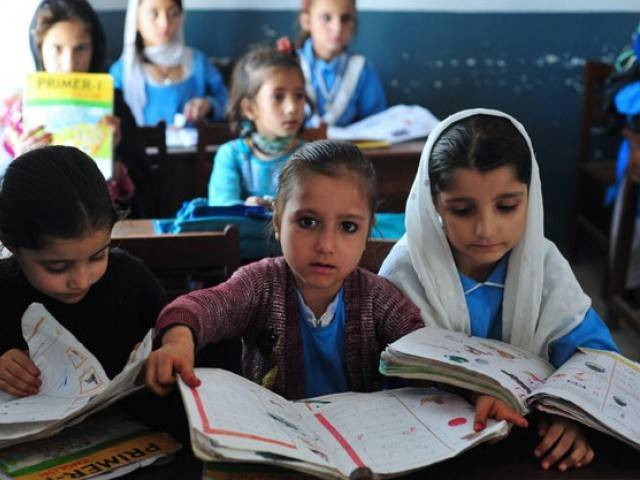Sindh govt, UNICEF team up to spread cleanliness
WASH project includes constructing toilets, encouraging hygienic practices

The project will include constructing bathrooms at government schools. PHOTO: EXPRESS
The plan has been designed for five years from 2017 to 2022 for Sindh and is supported by UNICEF. The programme has been titled the Water, Sanitation and Hygiene (WASH) project and is included in the department’s schools strategic plan.
A notification has been issued by Schools Education Secretary Abdul Aziz Uqaili to notify the five-year plan to the sub-departments.
WASH is aimed at enabling all stakeholders, including the schools education department, UNICEF and private sector partners in education who are working at child-friendly schools, to set milestones and achieve results for school-going children.
Water, sanitation given due attention in budget
This can only be done through allocations of funds, provision of child friendly WASH facilities, promotion of health and hygiene, starting of daily group hand washing activities in schools and strengthening the monitoring and evaluation of WASH in school programmes in the province.
In the programme, clean drinking water will also be made available in schools and new washrooms will be constructed in public sector schools.
Heading the WASH project, Dr Fauzia Khan told The Express Tribune that for now the plan is a just a road map and no further plans have been made yet. "Our commitment is to provide clean drinking water and sanitation facilities," she said, adding that the number of schools that will be included in the WASH project has not been finalised as yet.
After water, sanitation, judiciary looks into schools, hospitals
The government has participated in and initiated various sanitation and hygiene projects over the years but the WASH project is one of a kind due to its five-year timeline.
The state of hygiene and sanitation in the province can be gauged by the statistics shared in Alif Ailaan's district reports, which state that only 23% of 46,000 schools in Sindh have basic facilities such as electricity, water, toilets and boundary walls.
According to the strategic plan shared by Dr Khan, in the first year, 2017 to 2018, toilets will be constructed in 25,495 primary schools, 1,753 middle schools and 1,627 high schools. Clean drinking water will be ensured in 24,024 primary schools, 1,581 middle schools and 1,505 high schools in the first phase of the plan.



















COMMENTS
Comments are moderated and generally will be posted if they are on-topic and not abusive.
For more information, please see our Comments FAQ